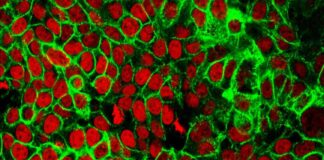Examining Abbott’s Heart Clip: Uncovering the Truth
A recent study has shed light on Abbott’s MitraClip, a device designed to treat patients with mitral regurgitation. The RESHAPE-HF 2 trial, presented at the European Society of Cardiology meeting and published in the New England Journal of Medicine, has sparked discussions among cardiologists regarding the efficacy of the device.
Mitral regurgitation is a condition where blood leaks backward into the left heart chamber, leading to symptoms such as fatigue and, in severe cases, heart failure. Abbott’s MitraClip works by clipping the mitral valve’s leaflets together to prevent blood leakage. The results of the RESHAPE-HF 2 trial showed that the clip improved health status and reduced hospitalizations due to heart failure. However, it did not significantly reduce the number of deaths among patients.
The findings of the trial have raised questions about the overall impact of the MitraClip in managing mitral regurgitation. While the device has shown promise in improving patients’ quality of life and reducing hospitalizations, the lack of a significant reduction in mortality rates has left some cardiologists skeptical about its long-term effectiveness.
Subheadings:
1. Impact on Health Status and Hospitalizations
2. Debate Among Cardiologists
3. Future Implications and Considerations
Impact on Health Status and Hospitalizations
The RESHAPE-HF 2 trial revealed that Abbott’s MitraClip had a positive impact on patients’ health status, leading to improvements in their quality of life. By reducing the severity of symptoms associated with mitral regurgitation, such as fatigue and shortness of breath, the device helped patients regain a sense of normalcy in their daily lives.
Furthermore, the study showed a significant decrease in hospitalizations due to heart failure among patients who received the MitraClip. This reduction in hospital admissions suggests that the device may play a crucial role in preventing disease progression and improving overall outcomes for individuals with mitral regurgitation.
Debate Among Cardiologists
Despite the positive outcomes observed in the RESHAPE-HF 2 trial, the lack of a significant reduction in mortality rates has sparked a debate among cardiologists. Some experts argue that the primary goal of any treatment for mitral regurgitation should be to prolong patients’ lives and reduce the risk of death.
On the other hand, proponents of the MitraClip point to the device’s ability to improve health status and lower hospitalizations as important factors to consider. They argue that while reducing mortality rates is crucial, enhancing patients’ quality of life and reducing the burden of hospitalizations are also essential outcomes to consider when evaluating the device’s efficacy.
Future Implications and Considerations
As the debate over Abbott’s MitraClip continues, it is important to consider the broader implications of the device in the management of mitral regurgitation. While the RESHAPE-HF 2 trial has provided valuable insights into the device’s impact on health status and hospitalizations, there is still a need for further research to fully understand its long-term effects on mortality rates.
Moving forward, future studies should focus on assessing the durability of the MitraClip and its ability to provide sustained benefits for patients with mitral regurgitation. Additionally, researchers should explore the potential for combining the device with other treatment modalities to optimize outcomes and improve overall survival rates for individuals with the condition.
In conclusion, Abbott’s MitraClip has shown promise in improving health status and reducing hospitalizations among patients with mitral regurgitation. While the device has not demonstrated a significant reduction in mortality rates, its impact on quality of life and disease management should not be overlooked. As the field of cardiology continues to evolve, further research and collaboration among experts will be essential in advancing the treatment of mitral regurgitation and improving outcomes for patients.


















